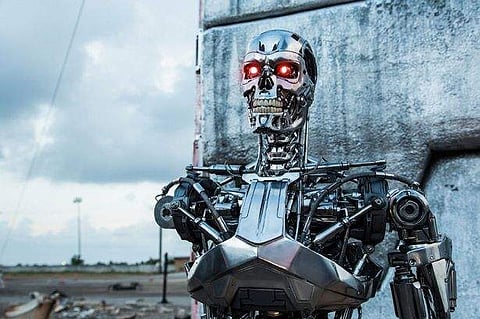

A couple of weeks ago, while preparing for a trip overseas, I thought of calling up my mobile service provider to discuss an economic ‘plan’. I usually do this after discussing the viability of the plan with an executive from the company. However, this time, I dialled the number and the usual recorded voice came on and meticulously walked me through the process, dial one for this and two for that and so on and so forth, but the various options it read out did not have a solution for me, and to my dismay, it cut me off ruthlessly without a solution. I tried again and met with the same fate.
How I longed for the warmth of genuine human intervention, someone who will understand my predicament and go an extra mile to help me with a solution, but there didn’t appear to be any options for that. I remembered The Terminator’s iconic statement ‘I’ll be back’. The movie’s storyline, set in 2029, is the year of darkness when artificially intelligent machines take over the world, a grim prospect indeed. In the film, these machines decide to completely erase human beings from the face of the Earth.
Even if that appears far-fetched, when I hear senior managers talk and read what they have to say, soon human interventions would be replaced with super-efficient but unfeeling machines. When you reduce the number of human touch points in any process or interaction, you are no doubt cutting down the possibility of errors. Then again these machines don’t apply for sick leave or have bad days and most importantly, don’t ask for a raise, of course, they have to be upgraded often, which is equivalent to a raise.
Most importantly, they can multitask, while doing the allotted work with super efficiency, they can gather and collate data, they can talk to other machines and many other things. However, creativity and thinking out of the box will have to take a back seat while precision and programmed execution will be the new order. Disruptive innovation sometimes happens because of mistakes, but since everything is error-free, the possibility of disruption too could be virtually eliminated.
There would be pluses, the driverless car for instance, where accidents could be minimised, parking problems overcome and traffic congestion reduced. In my opinion, it will be disastrous if the cooking department is handed over to robots who are on ‘read-only’ mode, they will no doubt turn out exactly what they have been programmed to cook, but there is a common belief that the mood or the emotions of the person who is cooking is transmitted through the food to the person who is eating it. If this is true, then what kind of mindset will the future generation have?
Will they be devoid of all feelings and just be ruthlessly efficient? I can almost hear The Terminator’s raspy voice getting closer.
